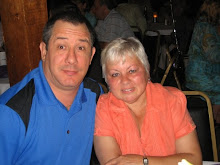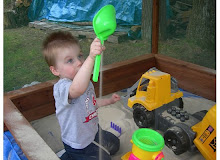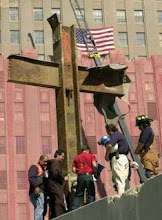On Saturday, we hosted a group called Shiloh who featured Gospel Acoustic Music. You can go here to read more about this faith based group who features music to my ears. During the course of the evening we were entertained with great jokes and stories about the group and their personal testimony of how Christ has changed their lives for the better. One member took the time to tell us about their music selections. I was very impressed with the song "Mary did you know."
Their music has a mission, it is specifically chosen so that a message can be revealed, unlike some of the louder musicians, we can hear the words. The Orthodox Church has understood this concept from the very beginning.
Our weddings are not proceeded by Here Comes the Bride. One of the reasons is it is understood to have been derived from a bar, years prior. Orthodox church music is written not to entertain it's congregation, but to represent the cherubim, singing to God in the Divine Liturgy. We do not use instruments, which man has made, but our own instrument (our voice), which God has made. Our voice is not always pleasing, but the joke has always been, that the angels fix it on the way up.
There are eight tones, which holy words are written to accompany, and if done correctly, are very beautiful. The idea is of course, that the words are heard and not drowned out by accompaniment. This is called singing Capella.
The book of Revelation5:9-14 describes songs sung (Three doxologies) by greater choruses. Elders with the most eminent angels sing a new song. Then the priests, followed by the choir and then the entire church. All creation, the whole cosmos join in a hymn of Glory to the Father and the Son, when we sing to God in the Divine Liturgy, "we are representing the Cherubim", who are singing to Him in heaven.
The worship of God is unceasing, an ideal which inspires the round the clock services of Orthodox monastic communities. (They even read through meal time). They do not rest day or night and pray without ceasing. (Ps. 103:20-22; 148; 150; 1 Thess. 5:17). ("Holy God, Holy Mighty, Holy Immortal, have mercy on us!" reverberates throughout the services of the Orthodox Church. A perpetual thrice-holy hymn of the "cherubim and the seraphim," underscoring that the Divine Liturgy on earth is one with the heavenly liturgy of the angels and glorified saints. Rev.4:10"The elders participate in the heavenly worship through the physical acts of prostration and casting down their crowns."(based on Scripture and signifies humility before God. "The casting of crowns shows that the honor and glory of the saints derives from, and belongs to God." ( Taken from the Orthodox Study Bible.)
Many Christians have been known to bear persecution with joy, singing hymns. This is a powerful testimony to the Christian faith such as we read in Acts 16:25.
The supper has begun in the Eucharist, the Church is betrothed to Christ by faith, The coming of the Bridegroom for the marriage supper of the Lamb (Rev.19:9) , the final eschatological union of Christ and His Church is awaited. And the Orthodox sing on Pascha (Easter)" Shine, shine, O New Jerusalem; the glory of the Lord has shone on you...(Rev. 19:1) "In contrast to the song of doom for Babylon (ch.18), the scene returns to the heavenly liturgy with an outburst of celestial triumph. Alleluia!"
On Pascha we sing, "As many as have been baptized in Christ, have put on Christ, Alleluia."
In "His" Church we Worship. Worship is not entertainment.
Keto Simple
5 years ago



























No comments:
Post a Comment